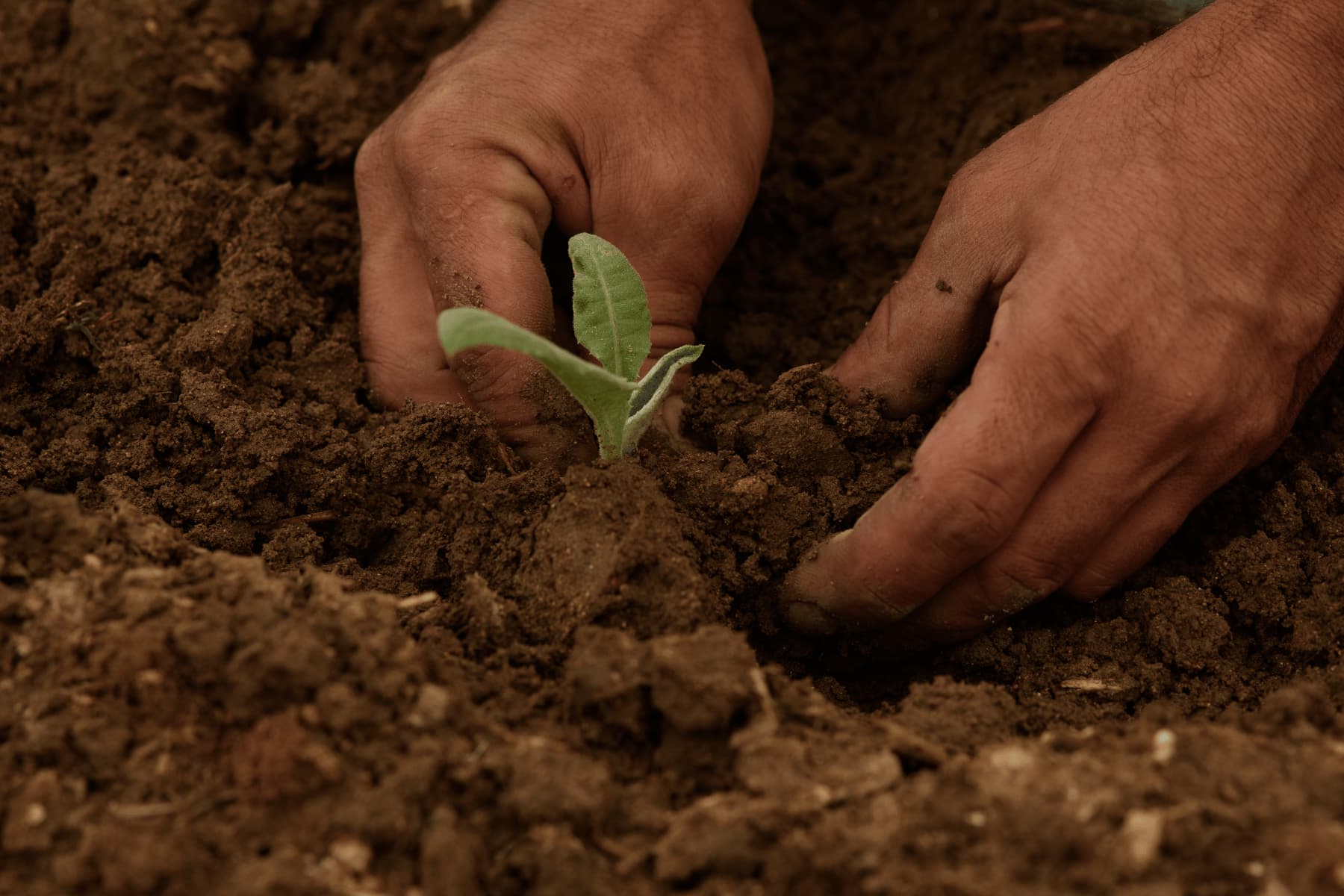As farmers work to make their operations more sustainable in the face of challenging industry conditions, anaerobic digestate is emerging as a promising alternative to expensive, petroleum-based nitrate fertilisers.
Anaerobic digestate (“digestate”) is a byproduct of the anaerobic digestion process used to produce biogas and biomethane, which uses microbes to break down organic waste like animal manure in an oxygen-free environment. The process produces biogas, which is captured and filtered or “upgraded” to produce biomethane. (Learn more about the difference between biogas and biomethane.)
Digestate from the AD process is rich in essential nutrients like nitrogen, phosphorus, and potassium, making it an excellent natural fertiliser and soil conditioner. But there’s so much more to it than that.
Investing in AD and the associated digestate offers farmers and rural communities many benefits compared to synthetic fertilisers.
Why biomethane and digestate support farmer profitability and local prosperity
Thanks to fluctuations in global energy markets and supply chain disruptions, synthetic fertiliser costs peaked in 2022. Although prices have almost halved since then, this price spike dramatically increased the cost of doing business for farmers while raising food prices worldwide.
Digestate offers a stable (in terms of price and availability), locally produced and cost-effective alternative. It can also lead to significant savings on waste management and input costs.
Farmers who partner with CycleØ to supply slurry to a biomethane plant can significantly reduce the cost and complexity of slurry management. Instead of leasing additional land or investing in costly storage infrastructure, farmers can simply transport slurry to an AD plant where it will be used to produce carbon-neutral biomethane.
The digestate left over after the AD process will be available to farmers as a low-cost source of natural fertiliser, thereby reducing the need for costly synthetic fertiliser.
Biomethane facilities also create local jobs and provide additional taxation revenue, which can invigorate rural areas to support community development and resilience.

How digestate increases crop yields and quality
Synthetic chemical fertilisers enhance crop productivity and soil fertility. However, using them continuously can cause soil organic matter to decline and lower soil quality over the long term.
Overusing chemical fertilisers hardens soil, reduces fertility, causes pollution, and weakens microbial activity in the cropping system.
Digestate, on the other hand, provides a balanced nutrient profile that supports healthy crop growth more effectively than synthetic fertilisers.
Digestate – your super organic fertiliser
The exact nutrient composition of digestate varies based on the organic waste feedstock used. But all digestate contains the following:
- Organic matter: The organic matter in digestate decomposes more slowly than most manures but faster than compost.
- Phosphorus: Phosphorus in digestate is generally highly available for plant uptake. Plants can absorb 80 to 90% of the total phosphorus in digestate.
- Nitrogen: Digestate typically has a relatively high mineral nitrogen content, similar to liquid pig manure. This nitrogen is immediately available for crops when applied. Digestate also contains organic nitrogen, which gets slowly released through mineralisation.
- Other nutrients: Digestate is also an excellent source of many macro, micro and trace nutrients beneficial to crops. Fields fertilised with digestate are rarely deficient in micronutrients.
As experienced farmers know, having the correct soil nutrient profile is critical to healthy crops and increased yields
Digestate helps meet regulatory and community commitments
Using digestate instead of chemical fertilisers can help farmers comply with regulations and show dedication to their communities.
Nitrate pollution of ground and surface water is a concern for farming communities everywhere. It happens when nitrogen from both chemical fertilisers and raw animal manure leaches down through the soil and enters the groundwater table or nearby lakes or streams, making them unfit to drink. In surface water, nitrates can lead to low oxygen levels, biodiversity loss, overgrowth of algae and other environmental concerns.
Governments limit the volume of nitrates farmers may release into the environment. These regulations often restrict the use of chemical fertilisers and cap how much manure farmers can dispose of on each hectare of land.
The nitrogen in digestate is easier for plants to absorb than synthetic fertilisers. So, when applied to crops at appropriate times in suitable quantities, digestate can support plant nutrient uptake more efficiently. That reduces the risk of excess nitrates entering bodies of water.
By strategically using digestate, farmers can more effectively meet regulatory requirements. Practising sustainable agriculture in this way can also enhance a farm’s reputation within the community. Community members who are aware of a farmer’s actions to protect their watersheds are more likely to offer the farmer their support.
Learn more about using digestate to manage nitrate levels by reading our article.
CycleØ Your Partner in Renewable Gas Solutions
At CycleØ, we develop, own and operate biogas plants across Europe, working towards our mission to turn waste into renewable natural gas. We are a biogas plant developer that understands the intricacies of anaerobic digestion.
Contact us today to explore how we can partner to turn your waste into a valuable renewable energy resource and contribute to a greener future.